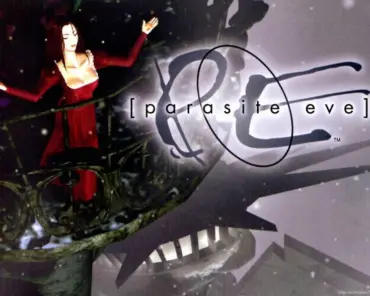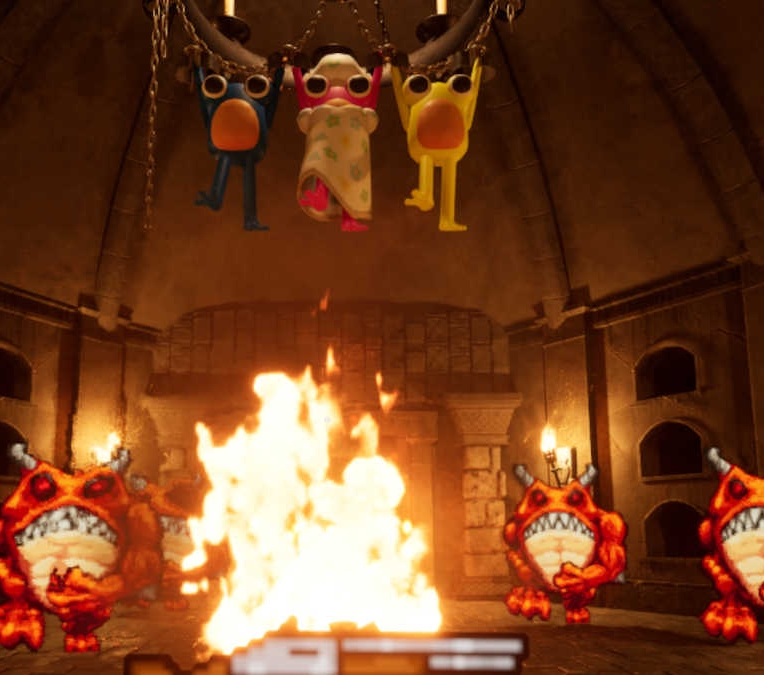47Views 0Comments
Back in 2024, Sukeban Games, better known as the creators of better-than-sliced-bread indie hit VA-11 Hall-A (no, I will not take constructive feedback on this statement), made an official announcement for a project that was teased as “Project D” and gave it an actual name: .45 PARABELLUM BLOODHOUND.
.45 PARABELLUM BLOODHOUND is touted as a “Cyberpunk Active Time Action” game, with the “Active Time Action” part originating from the combat system used in Parasite Eve, which just so happens to be the game I’m reviewing today. How’s that for a smooth transition?
Parasite Eve Retro Review

9.0Superb
PlatformsPS1, PSP, Vita
Release DateMarch 29, 1998
DeveloperSquare
PublisherSquare
Parasite Eve is a 1998 survival horror JRPG where you play as NYPD copper Aya Brea as she stops the mysterious Eve and her mutant army from slaughtering all of humanity. The game features fast-paced Real-Time with Pause (RTWP) combat, a creepy soundtrack that doesn’t let you off the hook for even a moment, and impressive camera angles that give you cinema-like immersion.
Things get out of hand quite fast
As far as video games go, Parasite Eve’s story is one of the wilder ones I’ve come across. One of the core concepts in the story that comes up early on is that mitochondria (yes, the beloved powerhouses of the cell) have evolved to the point where they refuse to play second-fiddle to the nucleus and wage war against humankind to create their own dominant species… Or something like that, I may have missed an expository detail or two in-between all the explosions and grotesque abominations that tried to murder me.
Oh, but that’s not all. The game takes place over six days and one night, and, boy, do things heat up fast. Slight spoilers ahead: Day 1 sees you doing a routine investigation with an exciting carriage scene in the middle of New York. By Day 4 there are fighter jets flying through the streets. It’s also not the longest game in the world, especially with how small the maps are, and I’m all the more thankful for it since I don’t feel like I’m taking forever just to make significant narrative progress.
Some older games may have a reputation for being slow, but Parasite Eve avoids this. It believes in taking your hand, duct-taping it to a bullet train, and firing up the engine with no stops until the end. In a world where it feels like leisure time is becoming more and more scarce, this kind of pacing and length was a breath of fresh air for me.
Fighting with monsters in turns like civilized creatures
This game was my first time playing RTWP, so let me break it down real quick for those unfamiliar. In Parasite Eve’s take on this style of combat, you start the fight running around to dodge monsters and their attacks until your Active Time Bar fills up. You then have the choice of blasting your enemies with any one of a wide range of conveniently available firearms, consuming items to regain health points or remove status afflictions, or using support skills, called Parasite Powers, which use “Parasite Energy” that also refills as the battle goes on.
I gotta be real with you here, I love this style of fighting. Before Parasite Eve I was used to typical turn-based mechanics and enjoyed the Active Time Battles of Final Fantasy IV (I really need to finish this one). Being able to run around while waiting for my turn blew my dang mind and increased the fun I was having since your proximity to enemies determines how accurate and powerful your attacks are. Fantastique.
You might think that combat becomes boring really quickly since being able to take time before making your next move can take out the horror in “survival horror”. Thankfully the game does a good job of making enemies tough while giving you just the right amount of items and weapons to scrape by. This balancing act keeps the tension going to the point where the game can feel more suspenseful than horrifying, but I’m not complaining.
There’s also a weapons upgrade system that lets you build weapons with different attributes and effects. It’s not too necessary to master since the game hands you better weapons with each passing day but experimenting can lead to some interesting outcomes.
For example, I tried to give one of my rifles the “Random Rate of Fire” effect, thinking I could have the power of a rifle with the rapid-fire of a machine gun, but all it did was make it shoot off randomly and put me in some tight spots. It still gave me a chuckle, even if the monsters gave me a good thrashing for it.
It’s like playing a movie
Remember all the cool fixed-angles in the first Resident Evil? Parasite Eve made sure to take notes and used them with glee. Throughout the game you guide Aya through various buildings while viewing the in-game world through plenty of Dutch tilts, high angle shots, and bird’s-eye views. This artistic decision elevates the game’s visuals by presenting Aya’s sprite as small compared to her environment, reflecting the story. Just like the microscopic mitochondria wreaking havoc on a macro-scale, Aya may be tiny compared to her adversaries but she has no trouble putting them in their place.
The music is nothing to sneeze at either. Legendary composer Yoko Shimomura created some of the most unsettling sequences of sounds you’ll ever hear, a result of her trying to make “inorganic” music. Sure, the camera angles and graphics are cool as-is, but it’s the disturbing soundtrack that ties it all together.
Nobody’s perfect…
Look, I think Parasite Eve is a great game. Amazing even! I also think it has some flaws that make it stop short of being a certified G.O.A.T. (Greatest of All Time) game.
For one, the in-game menu is atrocious by modern standards. It may have been cool for its time, but these days, being blasted all at once with a deluge of information about your character, items, etc. isn’t what I’d call a great user experience.
The funny thing is, the rest of the time the screen is pretty bare, even during combat. It felt like the devs shoved all the usual RPG HUD elements into one place to preserve the cinematic feel they were going for.
Not to mention, the Parasite Powers don’t really receive much attention, even though they have a significant bearing on the narrative. There are at least some situations where using your Parasite Energy saved me in a pinch, particularly healing or launching heavy-hitter attacks. But for the most part, I could just shoot my way through enemies, which isn’t a bad thing by any means. It’s just kinda weird to me how Aya developing these abilities is a somewhat big part of the overall story but at the same time isn’t all too important to the gameplay. Yes, shooting guns at monsters and making stronger weapons is fun, but shouldn’t I be exploring my newfound powers, too?!
How does it hold up today?
So. The big question. How does Parasite Eve play in the modern era of the 2020’s? Well, I’m happy to inform you that it still plays terrific. Admittedly, I may have a slight bias since I love retro games and may be a bit more patient than some gamers. But I still believe that anyone can pick up this game and feel right at home, provided they can look past some of the flaws I mentioned earlier.
Overall, you’d be doing yourself a disservice by not playing this one-of-a-kind experience. Yes, many of Parasite Eve’s individual components already existed before they all morphed into it, but it’s how the game arranges them all together that makes the difference.
So what are you waiting for? It’s time to show the mitochondria who’s boss.
Parasite Eve Retro Review
9.0Superb
Parasite Eve is one of those hidden gems from the 90's that stands up to the test of time with a fiery passion. It may have its flaws and be a product of its time but it's not a relic from the past to sleep on.
Positives
- Real-Time with Pause combat mechanics maintains tension well with tough enemies and just enough supplies to barely beat them.
- Weapons upgrade system gives plenty of chances to experiment.
- Short length and limited maps give just the right amount of playtime while still respecting your time.
Negatives
- UI is clunky and overbearing, a true product of its time.
- Support skills mostly fall to the wayside despite being important to the narrative


